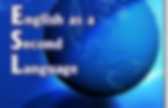

Understanding and Preventing Teacher Burnout. ERIC Identifier: ED477726 Publication Date: 2002-12-00 Author: Wood, Teri - McCarthy, Chris Source: ERIC Clearinghouse on Teaching and Teacher Education Washington DC. Many teachers find the demands of being a professional educator in today's schools difficult and at times stressful. When work stress results in teacher burnout, it can have serious consequences for the health and happiness of teachers, and also the students, professionals, and families they interact with on a daily basis. When a potentially threatening event is encountered, a reflexive, cognitive balancing act ensues, weighing the perceived demands of the event against one's perceived ability to deal with them (Lazarus & Folkman, 1984). Events perceived as potential threats trigger the stress response, a series of physiological and psychological changes that occur when coping capacities are seriously challenged.
. * Provide adequate resources and facilities to support teachers in instructional practice. Bennett, K. Www.tttjournal.co.uk/uploads/File/back_articles/Towards_Reflective_Teaching.pdf. Reflective Teaching: Situating Our Stories. This paper combines the research tradition of the literature review and the literary device of flashbacks, in the form of vignettes, to examine the notion of reflective teaching. The paper answers four questions: (1) What is reflective teaching? (2) How is reflective teaching different from what we've always done? (3) How is reflective teaching different from action research? And (4) Why is reflective teaching worth doing?
In late August, 1996, the South China Morning Post ran a story about Piers Gray, a recently deceased playwright and professor of English who had taught for many years at a prestigious university in Hong Kong. I was stunned. The inaccuracies in this newspaper report, the attitude behind Simon Gray's opinion of ESL teaching, and the factors which led up to his brother's death are not open to my scrutiny. Freeman (1996) has written about the evolution of three perspectives that are widely held in research on teaching.
What is Reflective Teaching? The First Vignette: Reflective Teaching Practice in Adult ESL Settings. Reflective Teaching Practice in Adult ESL Settings. ERIC Digest. by Florez, MaryAnn Cunningham For those working in adult English as a second language (ESL) settings, finding practical options for professional development is a concern. The field has a range of program types, a largely part-time workforce, limited financial resources for training, and varied policies and requirements for professional credentialing or certification (Burt & Keenan, 1998). Reflective practice is an evolving concept. In reflective practice, practitioners engage in a continuous cycle of self-observation and self-evaluation in order to understand their own actions and the reactions they prompt in themselves and in learners (Brookfield, 1995; Thiel, 1999).
Last year, Practitioner A participated in a series of workshops on fostering reflective teaching practices. This year, she is assigned to teach a beginning-level adult ESL class rather than her usual intermediate level. 1. 2. 3. 4. "Flexibility". "Challenges" Reflective Practice and Professional Development. ERIC Identifier: ED449120 Publication Date: 2000-10-00 Author: Ferraro, Joan M. Source: ERIC Clearinghouse on Teaching and Teacher Education Washington DC.
Reflective practice can be a beneficial process in teacher professional development, both for pre-service and in-service teachers. This digest reviews the concept, levels, techniques for, and benefits of reflective practice. In 1987, Donald Schon introduced the concept of reflective practice as a critical process in refining one's artistry or craft in a specific discipline. After the concept of reflective practice was introduced by Schon, many schools, colleges, and departments of education began designing teacher education and professional development programs based on this concept.
More recently, Boud and Walker (1998) also noted shortcomings in the way SCDEs were applying Schon's concept of reflective practice to teacher education. Reflective practice has also been defined in terms of action research. Clarke, A. (1995). Professional Development for Language Teachers. Resources Online Resources: Digests August 2003 EDO-FL-03-03 Professional Development for Language Teachers Gabriel H. Diaz-Maggioli National Administration of Public Education, Uruguay Download a PDF of this digest.
Defining Professional Development Professional development is an elusive term in education. The Need for Quality Professional Development School reform and accountability initiatives call for a new role for professional development in the career paths of teachers. Professional development differs from other professional endeavors, such as teacher supervision and evaluation, both in purpose and procedures. Effective Professional Development In order for professional development to be successful, it must be in line with research on teachers’ career development and patterns of adult learning. An important consideration in professional development is the educational context in which it is carried out.
Professional Development Strategies Peer Coaching Study Groups Dialogue Journals. Membership. Through professional interest sections, professional development programs, publications, and advocacy efforts, TESOL enables thousands of educators, researchers, and administrators worldwide to become more effective, more knowledgeable, and more skilled and to have a voice in shaping policies that affect their work. Join TESOL. Participate in TESOL. Be part of a global and collaborative community committed to creating a world of opportunity through teaching English to speakers of other languages. Be part of a dynamic community . . . All connecting with and inspiring each other to achieve the highest standards of excellence. Membership in TESOL is open to anyone involved in the ESL/EFL field.
Membership in TESOL opens up a world of opportunity Whatever your area of expertise, you can find the groups that are the best fit for you. Membership Categories & Dues Add a TESOL Quarterly subscription to your membership. National Association for the Education of Young Children | NAEYC. Welcome to the International Reading Association. NABE - Home. IATEFL - International Association of Teachers of English as a Foreign Language. ITESOL | Intermountain TESOL.